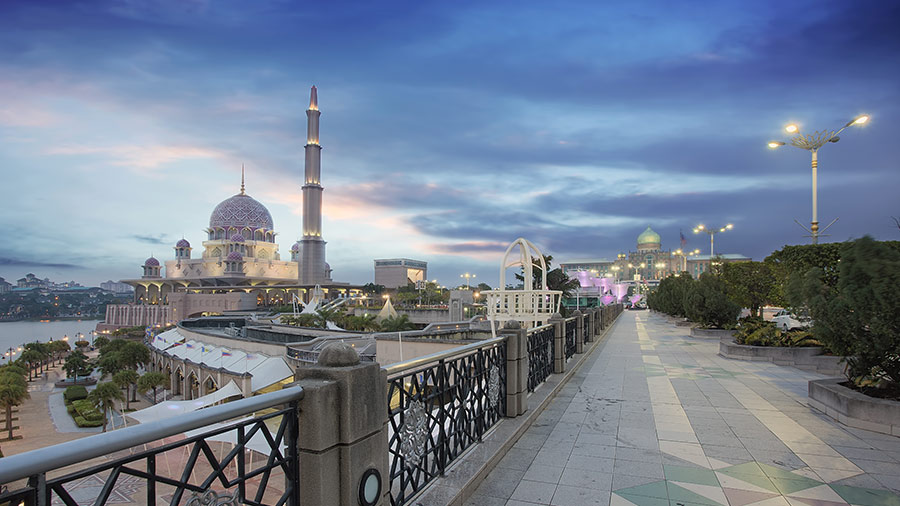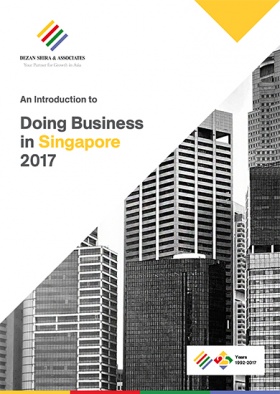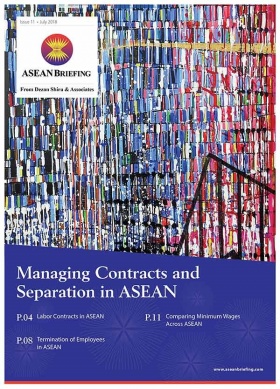Malaysia’s 2019 Budget: Salient Features
On November 2, 2018, Malaysia’s Minister of Finance Lim Guan Eng tabled the country’s much anticipated 2019 budget. The budget focuses on three areas – implementation of institutional reforms; socio-economic wellbeing of all Malaysians; and the fostering of an entrepreneurial economy.
Malaysia’s economic situation
The 2019 budget is based on several economic forecasts. The country’s GDP is expected to grow at a rate of 4.9 % in 2019, supported by strong domestic demand. Despite concerns over global trade, exports are forecast to increase by 4.4 % in 2018 and 3.9 % in 2019. Inflation is expected to remain between 1.55 and 2.5 % in 2018 and 2.5% and 3.5 % in 2019, while the unemployment rate is forecast to remain unchanged at 3.3 % in 2019.
Features of the 2019 budget
Several announcements were made in the 2019 budget, that may be of interest for corporations doing business in Malaysia. First, we will look at taxation measures, and then focus on social, entrepreneurial and infrastructural measures introduced by the budget.
Incentives to report unreported income
A Special Voluntary Disclosure Program will be launched to give taxpayers the opportunity to declare any unreported income. A reduced penalty of 10% to 15 % will be in place until June 30, 2019 after which the penalty rate will revert to 80% to 300%.
Taxation with an international connection
As of January 1, 2019, tax exemptions for interest earned on wholesale money market funds will cease as well as tax ceilings of RM20,000 (US$ 4,784) under the Labuan Business Activity Tax Act 1990.
A departure levy of RM20 for all outbound travellers by air to ASEAN countries and RM40 to other countries has been proposed for implementation from June 2019. A credit system for Sales Tax deduction to ease problems faced by small manufacturers, who purchase their products from importers, will be introduced in January 2019. Imported services will be subject to Service Tax from January 1, 2019. Therefore, foreign service providers will be required to register with the Royal Malaysian Customs, charge and remit the relevant Service Tax with effect from January 1, 2019.Casino taxation
Besides increasing the annual casino license fee from RM120 million (US$28.7 million) to RM150 million (US$35.88 million), casino duties will be increased up to 35% on nett collection. Additionally, the machine dealer’s license will be increased from RM10,000 (US$2392) to RM50,000 (US$11,961) and gaming machine duties will be increased from 20% to 30% of gross collection.
General taxation
The corporate income tax rate for taxable income up to RM500,000 (US$ 119,611) and for SMEs with less than RM2.5 million (US$ 598,054) in paid-up capital will be reduced from 18% to 17 %. The Real Property Gains Tax will be increased for companies and foreigners from 5% to 10%. The stamp duty on the transfer of property with a value of more than RM1 million (US$ 239,221) will be increased from 3% to 4%.
Incentives for environmentally friendly products and education
A pioneer status incentive of 70% or Investment Tax Allowance of 60% for five years is offered to companies that manufacture environment-friendly plastic that are bio-resin and biopolymer based. “Sugar-sweetened beverages” will be added to the list of manufactured goods subject to excise duty. The proposed duty will be RM0.40 per litre to be implemented as of April 1, 2019. Donations to national schools and public institutions of higher learning, which are officially registered for the purpose of upgrading infrastructure will be tax exempted starting from January 2019.
Fuel subsidy
Car owners with an engine of 1500cc or less and motorcycle owners of 125cc or less will benefit from a targeted fuel subsidy. Each car and motorcycle owner will enjoy up to 100 litres and 40 litres of RON95 petrol per month with a subsidy of at least RM0.30. This system is expected to start in the second quarter of 2019. Multiple car owner will not receive this benefit.
Salary increases
The minimum wage shall be raised to RM1100 (US$263) per month for the whole of Malaysia starting from January 2019. Requirements for public-listed companies in Malaysia to publicly disclose key pay metrics in their annual report will be implemented. This contains the lowest wage paid, the average wage per worker, the highest and lowest wage ratio and a statement by the company on how they intend to improve their employees’ average salary.
Entrepreneurial economy
Several billion RM will be allocated to government funds investing in venture capital, green technology, industry 4.0, digitalisation transformation, the halal industry as well as e-Governance.
Infrastructure
The government will cancel the Multi-Product Pipeline and Trans-Sabah Pipeline projects. The East Coast Rail Link (ECRL) has been suspended for further renegotiation. The MRT3 project has been cancelled as well for now and pending the completion of MRT2. The implementation of the Kuala Lumpur – Singapore High-Speed Rail has also been postponed.
About Us
ASEAN Briefing is produced by Dezan Shira & Associates. The firm assists foreign investors throughout Asia and maintains offices throughout ASEAN, including in Singapore, Hanoi, Ho Chi Minh City and Jakarta. Please contact us at asia@dezshira.com or visit our website at www.dezshira.com.









